
In-Depth Analysis of Raycon Everyday Pro Headphones: Impressive Endurance but Limited Functionality

In-Depth Analysis of Raycon Everyday Pro Headphones: Impressive Endurance but Limited Functionality
Key Takeaways
- Raycon Everyday Headphones Pro offer comfortable all-day wear but lack convenient control buttons.
- Sound quality is inconsistent, with some EQ modes proving disappointing.
- The battery life of up to 60 hours is accurate, but the call quality suffers in noisy conditions.
As a pair of much-hyped over-ear headphones, the Raycon Everyday Headphones Pro were a bit disappointing, to say the least. Although they hit it out of the park with comfort and long-lasting battery life, everything else was iffy. I found some audio quality compelling, but it wasn’t consistent enough to convince me these headphones are a competitive option.
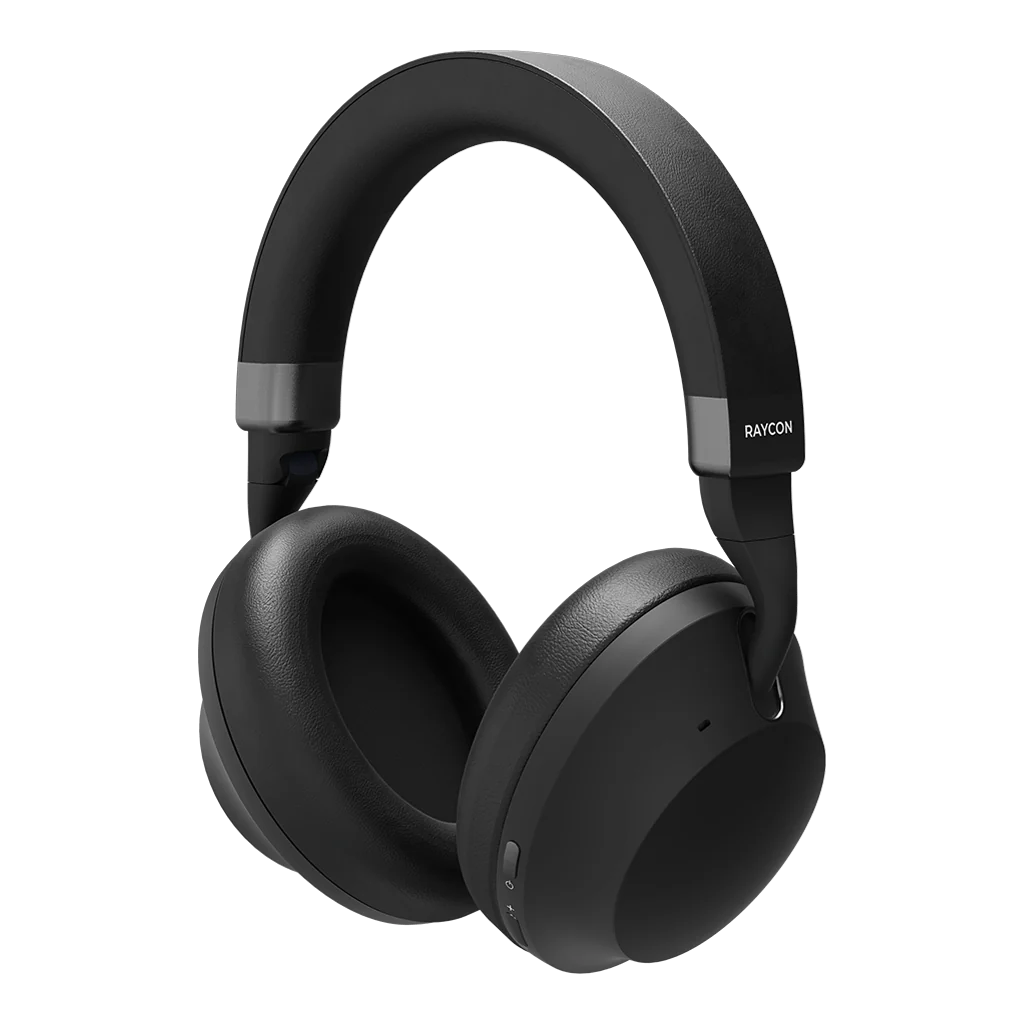
Raycon Everyday Headphones Pro
5/ 10
The Raycon Everyday Headphones Pro bring premium audio with hybrid ANC, six microphones, various sound settings, and a 60-hour battery life.
Pros
- Comfortable fit for all-day wear
- You hear everything in Transparency Mode
- Decent Hybrid ANC
- Microphones work well enough (if you’re not somewhere super noisy)
Cons
- No app to fine-tune your audio experience
- Clumsy control buttons
- Audio modes like Bass Sound and Pure Sound can be finicky and disappointing
$150 at Amazon $149.99 at Raycon
How We Test and Review Products
Price and Availability
The Raycon Everyday Headphones Pro are available to order now on Raycon’s website and Amazon. The headphones retail for $149.99 in each color.
Specifications
Brand
Raycon
Battery Life
Up to 60-hour battery life with ANC off; up to 44-hour battery life with ANC on
Bluetooth
Bluetooth 5.3
Noise Cancellation
Hybrid ANC
Microphones
6
Weight
9 ounces (255 grams)
Colors
Onyx Black, Storm Blue, Silk White
Audio codecs
SBC, ACC
Foldable
Yes
Charging type
USB-C
Multipoint
Yes
Dimensions
7.48 x 5.8 x 3.2in (189 x 147 x 81mm)
Battery charge time
2 hours
Carrying case
Yes
Driver size
40mm
Expand
Design: Headphones Comfortable Enough for All Day Wear
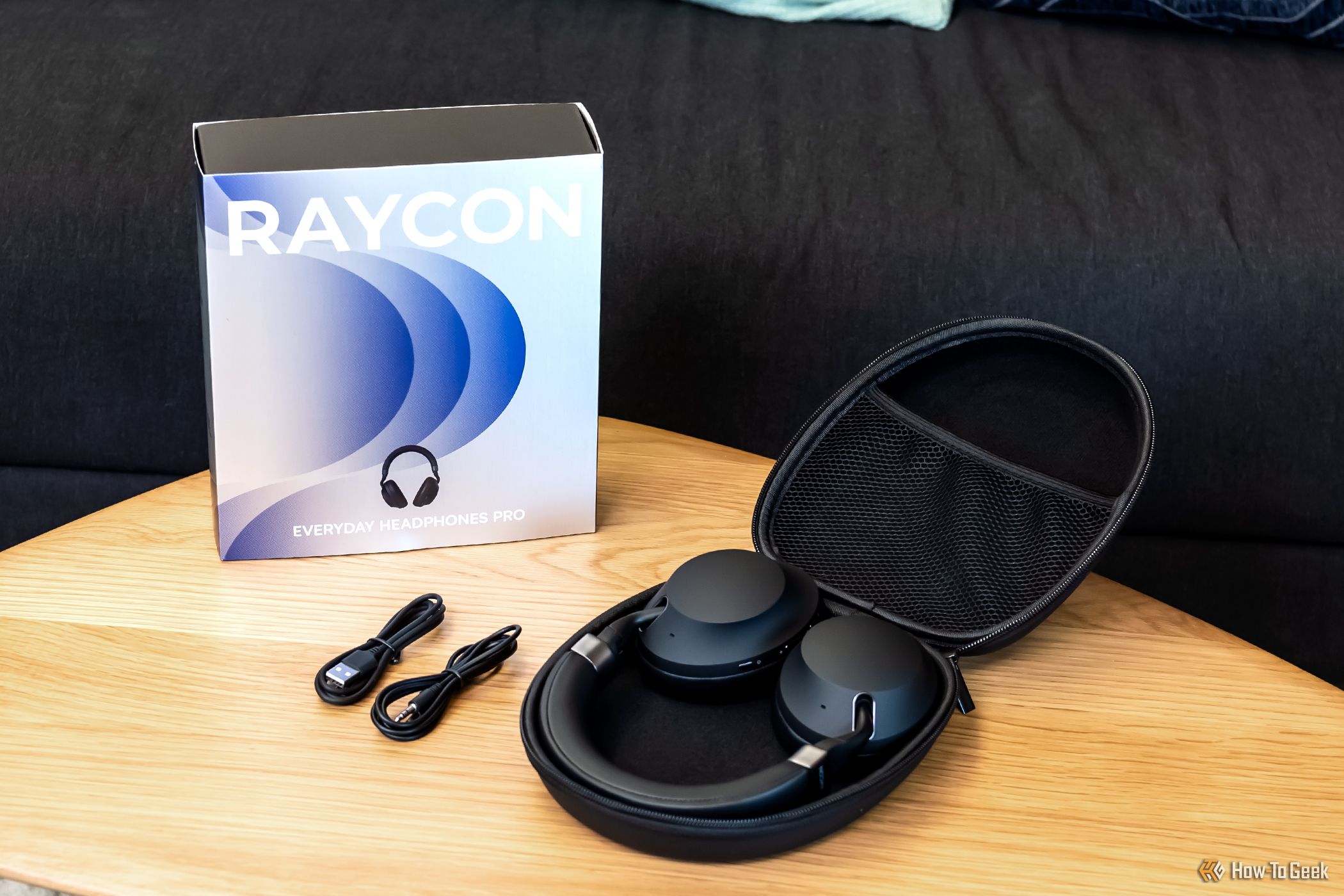
Sergio Rodriguez / How-To Geek
The Raycon Everyday Headphones Pro have a sleek design that’s nothing special. Compared to the brand’s cool design on the Everyday Earbuds Pro , these sort of fall into a forgettable category. But if subtle is your game, and you just want a pair of headphones that match anything, then you’ll love the look of them. Their clean looks even add a cool factor to a sporty outfit, so they’ll look great at the gym.
I loved the practicality of the design—the headphones were comfortable as heck. I wore them every day during work shifts, workouts (yes, even on the treadmill), and in my downtime to chat on the phone, listen to music, watch YouTube videos, and listen to an audiobook. Whatever I was doing, I felt super comfortable, thanks to the squishy headband and ear pads.
(On a side note, if you have neck problems like me, plus TMJ linked to upper body tension, working with these for over an hour at a desk might have your jaw clenching up.)
While the comfort was practical and the location of the USB-C charging port and the 3.5mm headphone jacks at the bottom of the cans made sense, what didn’t jibe with me were the control buttons. Concealed to the back of the right ear cup were three buttons. At the top was the power button, the middle had a volume up/down button, and the last button was the ANC/EQ button. I get that you might not want touch controls, but the Everyday Headphones Pro had a very weird setup.
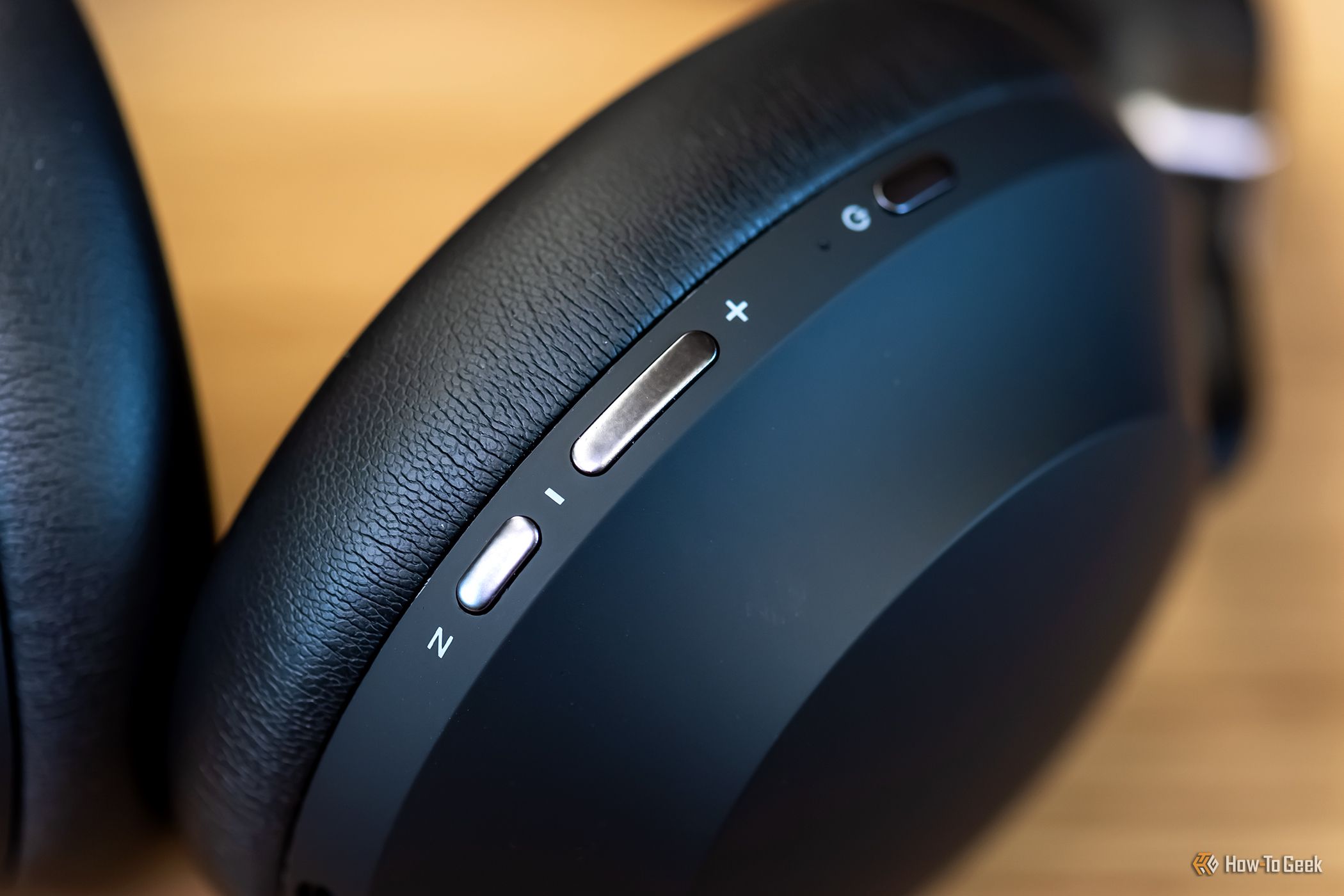
Sergio Rodriguez / How-To Geek
It wasn’t until I began using the headphones that I realized how clumsy this placement was. Why? Because anytime I wanted to change the volume, EQ mode, or switch on Active Noise Canceling, I fumbled with the buttons and hoped I was pressing the right one. I made many, many annoying errors that interrupted my music, often clicking the power button (which paused my music) rather than the volume-up button. Similarly, I would hit the volume down button instead of the ANC/EQ button. Even after a few weeks with the headphones, I still had to slide my finger over the buttons before pushing anything to make sure I was on the correct one. Not a very convenient feature, especially during workouts.
Audio Quality for Music and Beyond: It’s a Roll of the Dice
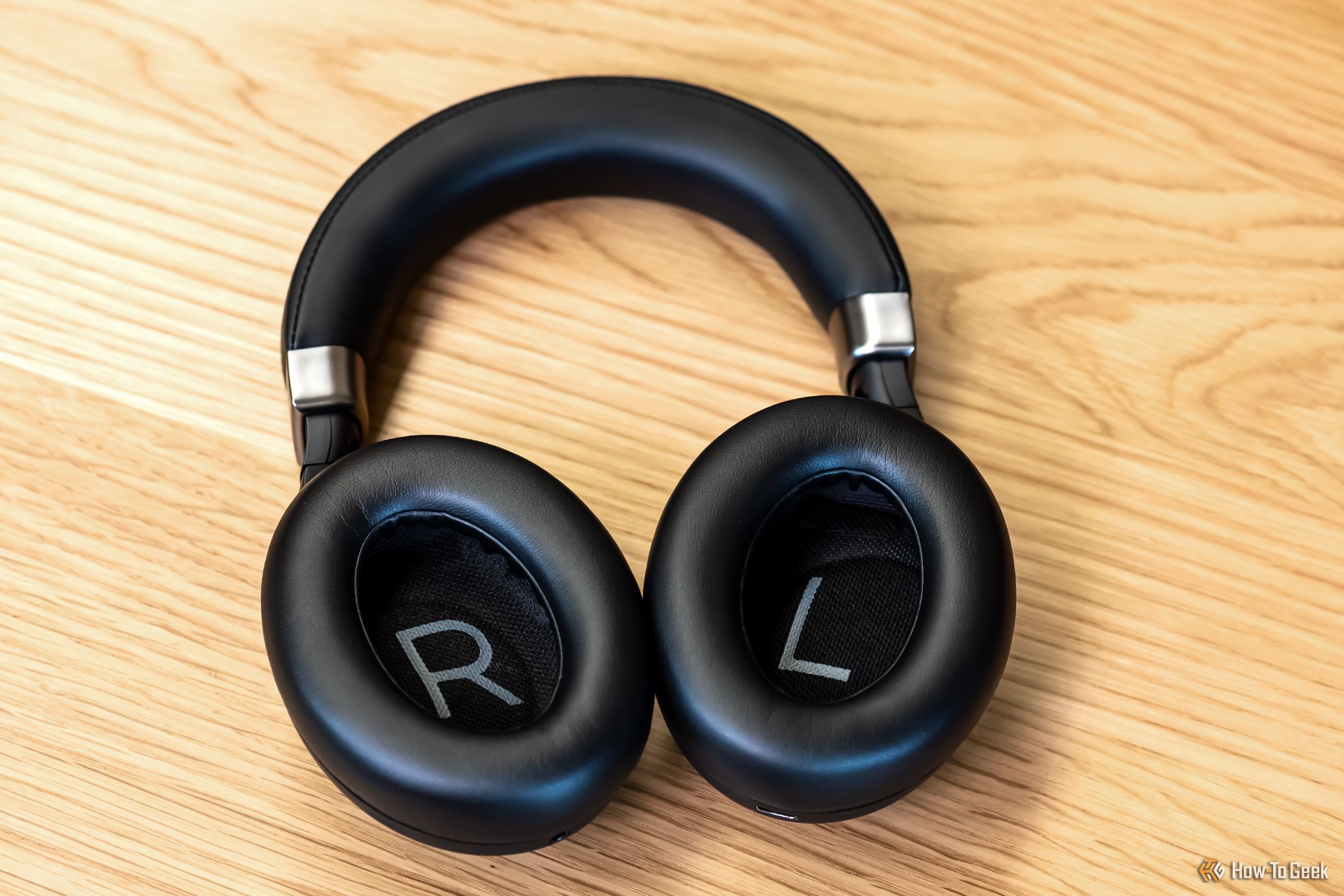
Sergio Rodriguez / How-To Geek
It hurts me to say that during testing, I had moments when I adored the Raycon Everyday Headphones Pro for their comfort and audio quality and many opposite occasions when the sound was really disappointing (and, at times, grating). Consistency was lacking in pretty much every way, but if I had to laud any of the EQ modes, it would be “Balanced Sound,” which seemed to do better for most music genres over “Bass Sound” and “Pure Sound.”
Active Noise Canceling
In the beginning, I thought the ANC mode was quite effective. And then I used it more and noticed that I could still hear a person talking in my house with ANC on. This depended on what I was listening to. If I had high-volume rock tracks on, the ANC sounded glorious. The world was completely blocked from my ears, and I was immersed in crunchy guitars, raw vocals, and rhythmic bass and drums. But with quieter music, lower volumes, and some spoken word (like an audiobook), ANC didn’t block someone speaking at a regular volume a few feet away from me (and yes, I could still make out what they said to me), and I could even hear the light tapping on my computer keyboard whenever I was working.
So, I’d score the hybrid ANC at about average to low average. People should be aware that it doesn’t block louder sounds like air conditioning, and depending on what you listen to, coupled with your volume, you might still hear your partner or roommate talking to you (I could consistently understand conversations with ANC on, which was disappointing). Oh yeah, and the ANC occasionally hurt my ears. I’m one of those lucky people who experience slight pain with ANC , so it was a bummer whenever there wasn’t an app to tweak the level of ANC down to my comfort, such as what’s offered on the Soundcore Space A40 Earbuds via the Soundcore app.
Transparency Mode
Although Raycon doesn’t name any mode “Standard Mode,” the “ANC Off” mode is the headphones’ default. This is a hybrid mix between ANC and Transparency, which essentially just sounds like normal headphones. But when I hit the ANC button one more time, I entered “Transparency Mode,” and Raycon did a wonderful job with this setting. I could balance listening to music or videos while keeping my wits about me, hearing everything from a fan in the room to a full conversation to my cat meowing for her lunch. However, because the ANC didn’t always cancel out noises, at times, it wasn’t necessary for me to switch on “Transparency.”
Bass Mode, Pure Sound, and Balanced Sound
The three EQ settings on the Everyday Headphones Pro were “Pure Sound,” “Balanced Sound,” and “Bass Sound.” Unfortunately, I had some high expectations for these settings and found that they were super inconsistent with sound quality across different tracks. In fact, “Pure Sound,” in general, was frightful to listen to.
In “Pure Sound,” I found a greater level of sibilance and uncomfortable, harsh high tones that were nearly intolerable. This was especially true on a track like Thrice’s “Hurricane,” when higher tones became more grating and totally drowned out the deep elements of the track like the bass. The whole mix sounded muddy, with Dustin Kensrue’s voice standing out harshly against a barrage of garage-band-quality instruments. For such a well-mixed rock song to degrade that poorly was a shock. And the drum cymbals on any track I listened to in “Pure Sound” were like nails on a chalkboard.
I also listened to spoken word a lot, à la YouTube or the audiobook version of Gerardo Sámano Córdova’s “Monstrilio.” The best way to listen to podcasts or audiobooks was “Balanced Sound,” as “Pure Sound” was far too sibilant, and “Bass Sound” drowned out the nuance of the human voice.
“Bass Sound” wasn’t a total loss, but it depended on what I was listening to. A track like Bad Flower’s “Ghost” sounded incredible in this mode, while it compressed and muddied many other tracks, totally obliterating mids and highs.
Call Quality: Average, But Crackly In Noisy Conditions
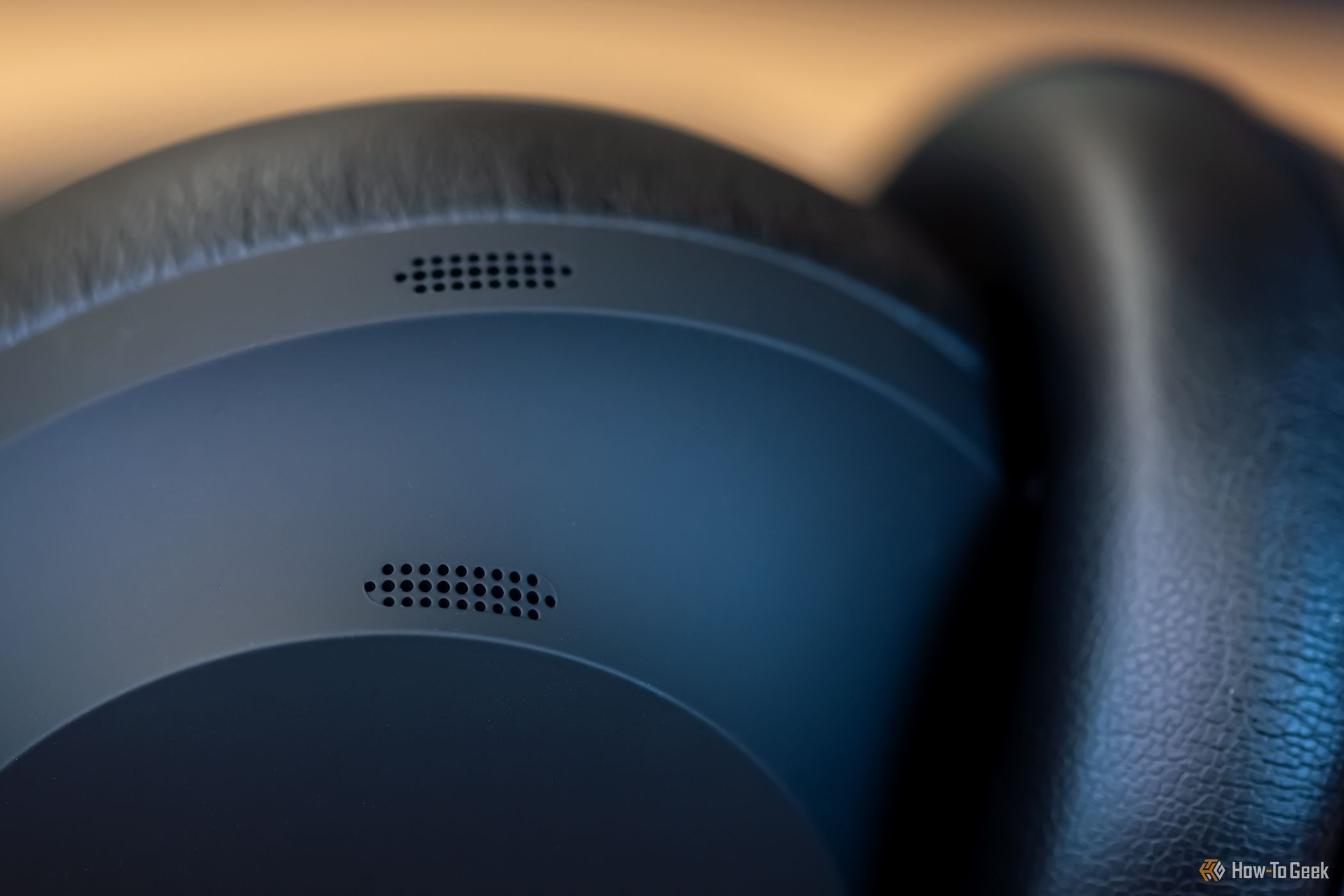
Sergio Rodriguez / How-To Geek
I made and received plenty of phone calls with the Raycon Everyday Headphones Pro, and when I asked about how the audio quality was, most people said I sounded fine. Some of these phone calls lasted over an hour, and still, my voice came across clearly and crisply.
I also tested the six microphones to record my Zoom meetings to check the sound quality. In most situations, the microphones were slightly above average, but there was still a rather compressed tone to the audio compared to when I recorded myself using my laptop’s microphones. On the flip side, I didn’t notice any odd reverb (a phenomenon that seems to happen with my laptop’s microphones in my office).
Unfortunately, the sound quality wasn’t great when I tested the headphones in noisier spaces. In some calls and mic tests, I noticed significant crackling and compression whenever there was a lot of background noise. For this reason, I feel the six-microphone system could stand major improvement.
Battery Life: It Goes On and On
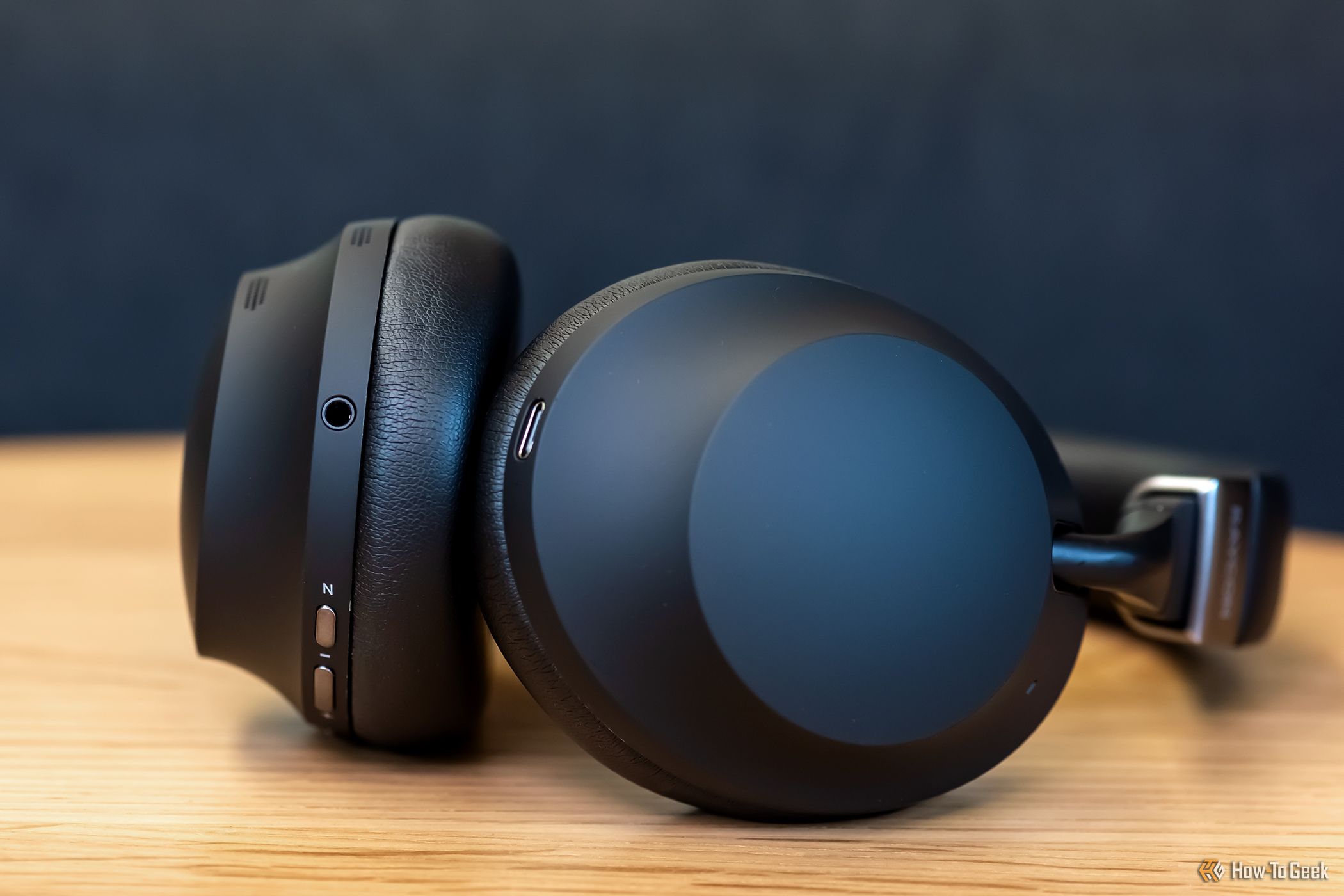
Sergio Rodriguez / How-To Geek
Raycon’s quote of an up to 60-hour battery life seemed to be accurate, as I experienced about two weeks of charge before the Everyday Headphones Pro died on me (my listening amounted to about 45 hours during this time). While I never hit a full 60 hours, I often had the ANC turned on or other EQ modes that would drain the battery quicker. Not to mention that during workouts or other activities, I occasionally listen at embarrassingly high volumes.
It took about two hours to charge them from 0%, so Raycon’s estimated charge time was correct—and not a bad amount of time to wait whenever I got over 14 days out of one charge.
Should You Buy the Raycon Everyday Headphones Pro?
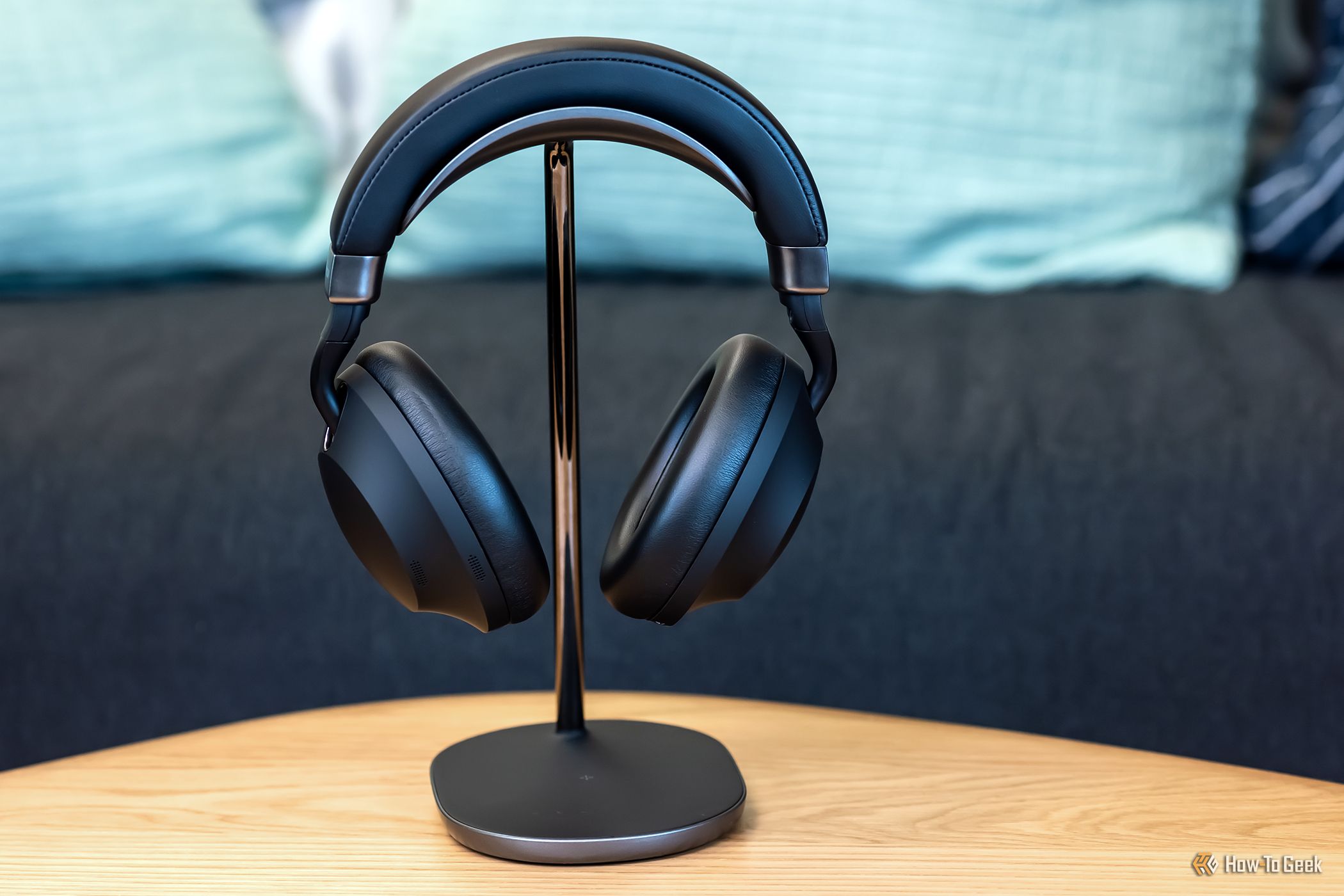
Sergio Rodriguez / How-To Geek
For the $150 retail price point, the Raycon Everyday Headphones Pro fall short of what one would expect from a pair of good ANC budget headphones . They don’t have a companion app to adjust settings, and I found EQ consistency problems that led to some really disappointing listening. Comfort isn’t the full story, and there are other over-ear headphones at a comparable price or for even less that I’d recommend above these.

Raycon Everyday Headphones Pro
5/ 10
The Raycon Everyday Headphones Pro bring premium audio with hybrid ANC, six microphones, various sound settings, and a 60-hour battery life.
$150 at Amazon $149.99 at Raycon
Also read:
- [New] Digital Domination Diaries for 2024
- [New] The Green Screen Revolution Access Comprehensive Tutorials From 4 Leading YouTube Educators
- [New] The Science of Quadcopters Understanding Their Flight Patterns
- [New] Top-Rated, Zero-Price After Effects Samples
- [Updated] The Expert Approach to Negative Picture Tones
- 2024 Approved OS X/Windows Supercharged Discover the Ultimate 10 SRT Upgrades
- 2024 Approved Top 5 HD Hunting Cameras Unveiled
- 2024 Approved Ultimate Phone & Camera Mounts Precision Focus Tracking
- Effortless Hardware Duplication in Home Computing
- How to Flash Dead Sony Xperia 1 V Safely | Dr.fone
- In 2024, Agriculture Amalgamations Best AgriGames to Share with Pals
- In 2024, Best 10 Mock Location Apps Worth Trying On Sony Xperia 10 V | Dr.fone
- In 2024, The Audiophile's Companion to Top-Tier Audio Equipment
- The Art of Integrating B-Footage Into Main Shots for 2024
- Title: In-Depth Analysis of Raycon Everyday Pro Headphones: Impressive Endurance but Limited Functionality
- Author: Mark
- Created at : 2024-12-21 02:23:13
- Updated at : 2024-12-24 20:23:47
- Link: https://some-guidance.techidaily.com/in-depth-analysis-of-raycon-everyday-pro-headphones-impressive-endurance-but-limited-functionality/
- License: This work is licensed under CC BY-NC-SA 4.0.